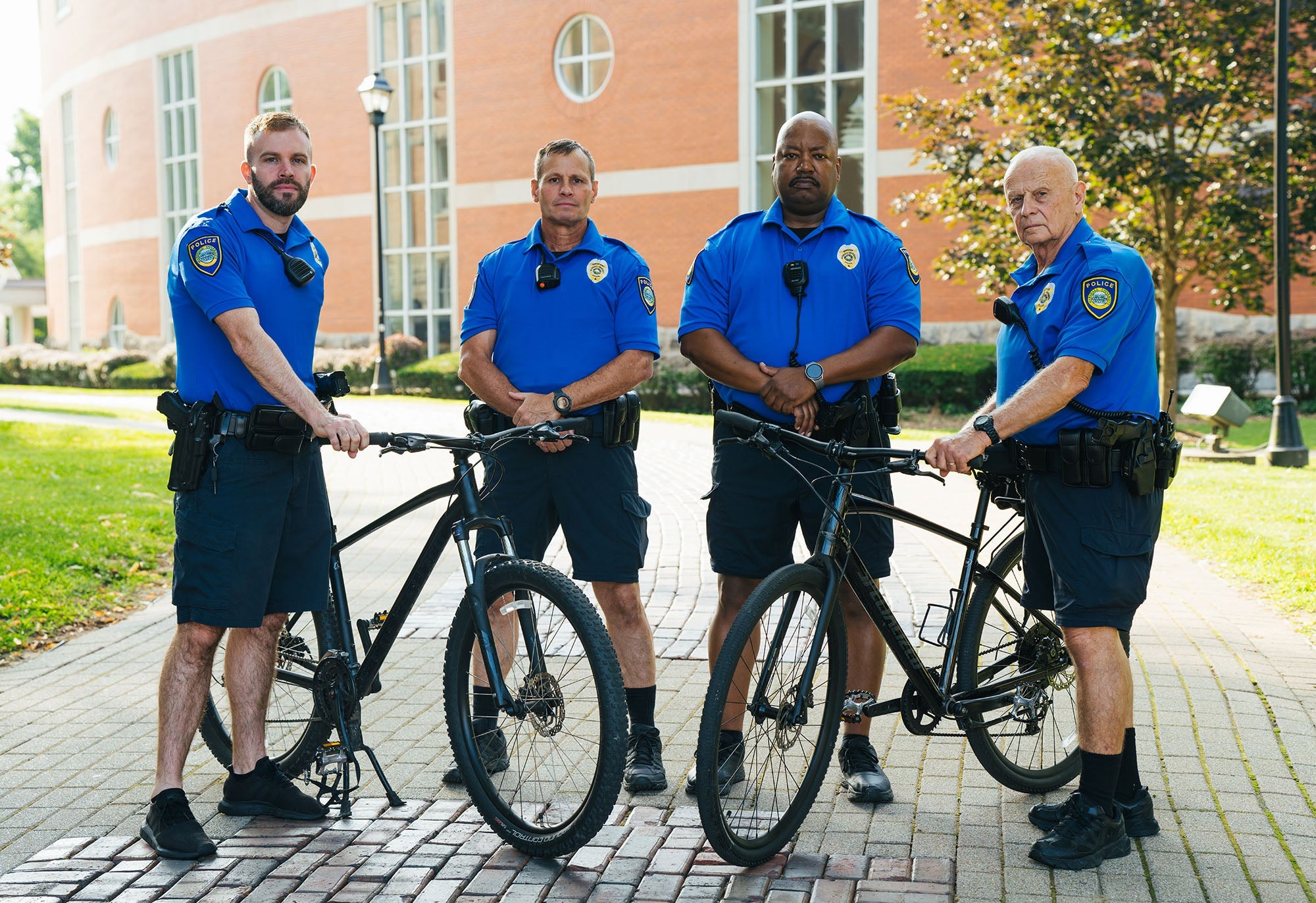Common Search Terms:

Marshall University Police Department

Your Safety is Our Mission
Meet the MUPD
At Marshall University, our concern for the safety and well-being of our students, faculty and staff is always a top priority. With the support of personnel from other departments, we have hundreds of people involved in our goal of maintaining a safe and secure campus. However, please remember that a truly safe campus can only be achieved through the efforts and cooperation of all students, faculty and staff who accept responsibility for their own security and the security of others. This publication is part of our on-going effort to ensure that this collective endeavor is effective. Please read it carefully and use the information to aid in fostering a safe environment for yourself and all others in the University community.
Campus Safety

Contact MUPD




